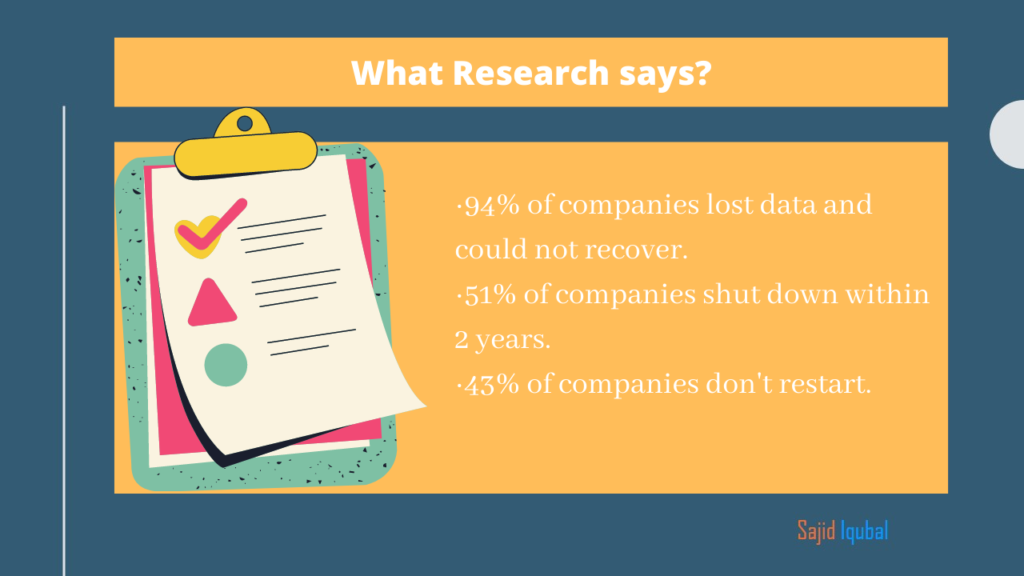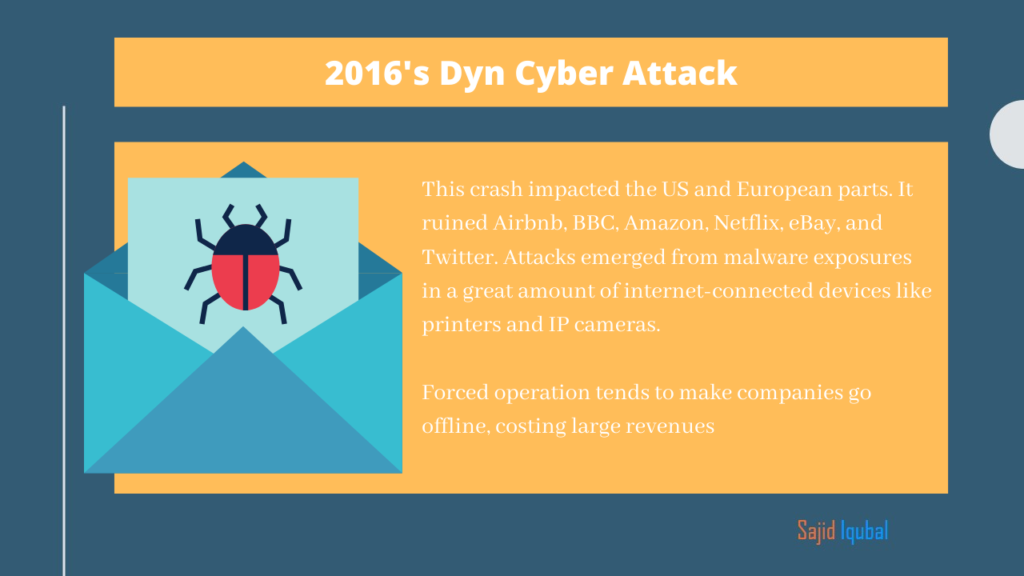I am well aware of how important is your data for business. Data loss results in disruption of your business and consumes time and resources. It leaves behind your productivity and timelines. You lose your customer’s trust and respect. It’s tough to build client relationships again.

According to research:
- 94% of companies lost data and could not recover.
- 51% of companies shut down within 2 years.
- 43% of companies don’t restart.
Though we try to back up data on the external hard drive, it does not fully protect in case of natural disasters and other events.
Let’s have a quick look at some of the causes:
Weather Conditions:
On the Atlantic coast, hurricane season extends from early June to late November.
It can take away your important documents and crash the building.
Winter season, heavy ice storms, and blizzards also contribute much damage.
In the Midwest, tornadoes are the cause of corrupting files and information.
Hardware Failure:
Though your company’s electronic files are secured on the main server, certain malfunctions occur and can’t be protected.
Floods:
The sudden high rush of water can wipe and destroy documents to a greater extent.
Software Failure:
Sometimes, applications or programs can also show their true colors. Viruses or glitches come into the picture of this failure.
Human mistake:
Poor judgment and slip-ups caused up by humans result in deletion of a file or false keystroke.
Fires:
Even though your files get spared of fire, firefighters spraying water and chemicals into the burning facility cannot save the data.
Security violation and theft:
In today’s time, electronic storage is portable and compact. Any thief can rob your vital information and detect your useful data.
Earthquakes:
Earthquakes down the coast can shake your information business without warning.
Liquid damage:
Coffee spill especially can ruin your data internally and cause a short circuit. I will further showcase 3 incidents of data storage loss:
1. OVH, the enormous hosting provider in Europe, has faced a horrible fire that damaged the data centers resided in Strasbourg on March 10, 2021.
French plant in Strasbourg contains 4 data centers, SBG1, SBG2, SBG3, and SBG4 which were closed due to the tragedy. Fire commenced in SBG2 center. Firefighters came to the rescue but the situation went out of hand.
The authorities had to disconnect the entire plant and closed off its border. The company urged the customers to initiate the Disaster Recovery Plan due to the disturbance of fire. Nobody was wounded but we should be aware of such consequences.
2016’s Dyn Cyber Attack

This crash impacted the US and European parts. It ruined Airbnb, BBC, Amazon, Netflix, eBay, and Twitter. Attacks emerged from malware exposures in a great amount of internet-connected devices like printers and IP cameras.
Forced operation tends to make companies go offline, costing large revenues.
British Airways IT failure
A huge IT crash rooted British Airways IT crash in 2017. The crash occurred when an IT maintenance contractor by mistake switched off an uninterruptible power supply at one of the data centers. It damaged the server.
WhatsApp Outage
In 2017, WhatsApp outage happened without informing its users worldwide.
Amazon Web Services Crash
Amazon Web storage services began to experience error rates. It caused partial and full outage on companies like Business Insider, Slack, and Quora.
Microsoft Azure Cloud Outage
It helps the app to run efficiently on its Azure Cloud services. This outage was caused due to human error.
Wikipedia DDOS attack
In 2019, the world got detached for 9 hours. It caused a great effect on web infrastructure. There was a packet loss of about 60%.
Google Server Clash
Google services like YouTube, Gmail, Google Drive, Google meet were affected. System distributed storage for Google’s services malfunctioned.
Why Disaster Recovery is important based on the above incidents?
Disaster Recovery looks after the availability, integrity, and security of data during unknown events. Also, containment of damage or injury to the expense of property, personnel, and data.
It provides productive recovery of significant systems and assists an organization in avoiding further damage to mission-critical operations.
Advantages:
- Minimizes recovery time and reasonable delays.
- Curbs potential legal liability.
- Enhances security.
STC provides BaaS and DR solutions to protect against such disasters in Saudi Arabia.
For more information you can visit https://cloud.stc.com.sa/